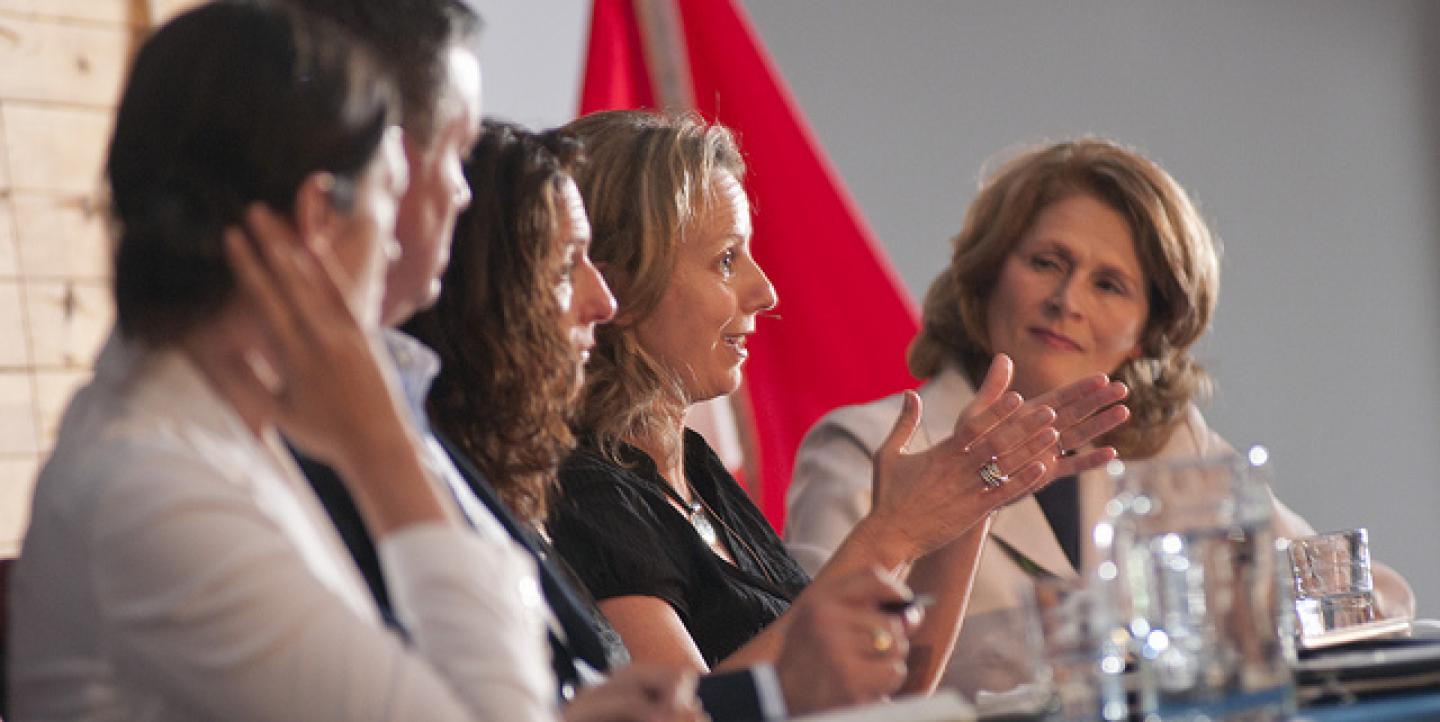By many accounts, it’s becoming more dangerous to work as a foreign correspondent: 80 journalists are killed in the line of duty every year and many more are attacked or jailed.
In other words, it's nothing like those iconic movies about foreign correspondents. Despite the risks, if you still dream of covering news in far-flung places, a recent panel of foreign correspondents co-sponsored by Centre for International Governance Innovation (CIGI) and The Canadian International Council discussed some of the dangers involved and offered expert tips for hitting the road.
Titled "Muzzled Media - The Global Challenge," panelists included CBC radio host Anna Maria Tremonti, Michelle Shephard, national security reporter at the Toronto Star. Sonia Verma from The Globe & Mail, and Allan Thompson from Carleton University. (You can watch a video of the entire 1:45 discussion here).
Here are nine takeaways IJNet gleaned from the discussion. For more tips, check out IJNet’s previous article on getting started as a foreign correspondent.
1-Prepare for the worst. The first challenge of being a foreign correspondent is the security risk of reporting from unsafe areas. The first rule: “try not to be the story.” Expect violence, detention, harassment, getting stopped from entering a country, getting shot at and being sexually harassed. Stories such as the detainment of New York Times reporters in Libya and the sexual assault of a U.S. reporter in Cairo are a reminder that it could have been you.
2-Government secrecy is a serious challenge, says Michelle Shephard. Risks and regulations vary greatly from one country to another. In Yemen, for example, you face different restrictions than those in Guantanamo Bay.
3-Be alert and don’t be complacent, especially when covering clashes. You might chew “qat” in Yemen to show you blend in, but when you cover clashes don’t be complacent. On one occasion, Shephard was caught in the midst of protesters when government forces started firing at university students protesters in Yemen. Shephard adds that “[we] have to remember risks are there” all the time.
4-Take a hostile environment course, but don’t over-prepare, noted Sonia Verma. Read up on the country, but remember your job is to ask lots of questions. Before leaving, get training on what to do in case you are imprisoned or kidnapped, from a company such as Centurion. Anna Maria Tremonti also recommends a course in combat first aid.
5-Befriend a local colleague. When working in a hostile place, it is essential to work alongside a local journalist. Shephard says that the “local reporters you meet…are the ones who are facing the most harassment” and their stories are often untold.
6-Find people, they make the good stories. Technology may have advanced but it will never replace the need for human stories. Reporters no longer need to put up a satellite dish as big as an umbrella to make a phone call, risking sniper fire. Telling the story of civilians when their world falls apart is still the most important part. Just make sure they are who they say they are, underlines Tremonti.
7-Take care of your fixer, suggests Verma. Fixers are hired to help you out. Often local journalists, “they fix everything for you,” from driving to translating. The New York Times now gives byline credit to fixers.
8-Remember that Twitter is a great tool, for international correspondents to find people to interview, says Verma. Make a request and you will get tips or help. [...] Many people used Twitter during the Arab uprising, says Shephard. Even in Yemen, Blackberry phones send tweets back and forth. Just hope your mom is not following when you’re tweeting from dangerous places, Shephard adds.
9-Parachute reporting is not enough. After parachute reporting post genocide in Rwanda, it took Allan Thompson a while to understand what really went wrong with the media coverage. Today, he is involved in reconstructing the role of media through building the capacity of journalists there. Follow up, he says, because you can still make a difference once the breaking news wanes.

